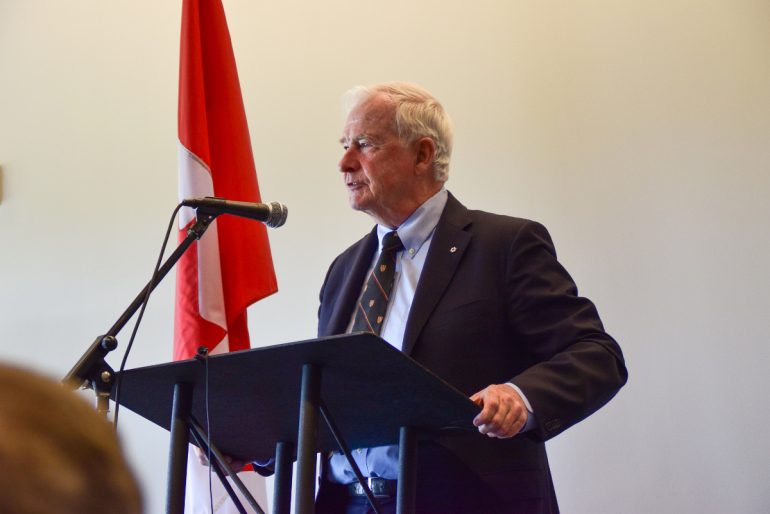Recently, Governor General David Johnston stood before the Waterloo Region community to mark the 10-year anniversary of the Accelerator Centre, one of the Waterloo Region’s earliest startup spaces. But for Johnston — who was key to making the Accelerator Centre happen as president of the University of Waterloo between 1999-2010 — it was more than an anniversary. It was an occasion to mark what happens when governments and institutions think ahead to foster innovation.
The Accelerator Centre is part of the David Johnston R + T Park, which has attracted the likes of global technology brands like Agfa, Google, OpenText, and SAP. Since its creation, AC has seen 51 graduates — that have raised $10 million on average — supported 200 companies, and created 1,500 jobs. According to AC, 100 percent of graduates have remained in Canada.
During the celebration, however, Johnston and other major AC players highlighted that getting the project off the ground — especially during a time before startups were recognised as a key part of building Canada’s economy — was no easy feat.
“There were few places in Canada where you had local mayors and regional chairs saying that we’re gonna do this to build a brain centre in our territory.”
“For many years, the university dreamed of creating a research and technology park, but it never seemed to be able to get off the ground,” said Ken Seiling, regional chair of the Region of Waterloo. “In 2001, the province of Ontario announced a $40-million fund for the region. Regional council, in its wisdom, took an innovative approach and decided to make sure important building blocks for the regional economy were addressed.”
The Region would go on to work with Johnston and the university to structure a plan for what would be the R + T park. But in Johnston’s words, this was not a “slam dunk.” Before the creation of AC and the R + T park, the university thought that they could attract companies like Microsoft or Cisco to the area with real estate. When that didn’t happen, the university and community opted for the made-at-home solution.
“There were few places in Canada where you had local mayors and regional chairs saying that we’re gonna do this to build a brain centre in our territory,” said Johnston. “This is a success, and the obstacles that were there, we all overcame. That happened because we have really good people who try always to find common ground in the interests that can rally people together.”
While the event celebrated the past, they also took the opportunity to look forward to the future. Paul Salvini, the CEO of AC, announced a planned shared space for both the arts and tech community at 44 Gaukel Street. The 10,000 square feet of space will house both tech creators and a performing arts community in desperate need of rehearsal space.
“We celebrate anniversaries because they’re important,” said Feridun Hamdullahpur, president of the University of Waterloo. “We celebrate them because we want to see what has been accomplished, but also gives us an opportunity to really pause and reflect and see why we started this in the first place, what has been done, but more excitingly, where are we going and how we will build upon this fantastic foundation that was made 10 years ago.”


